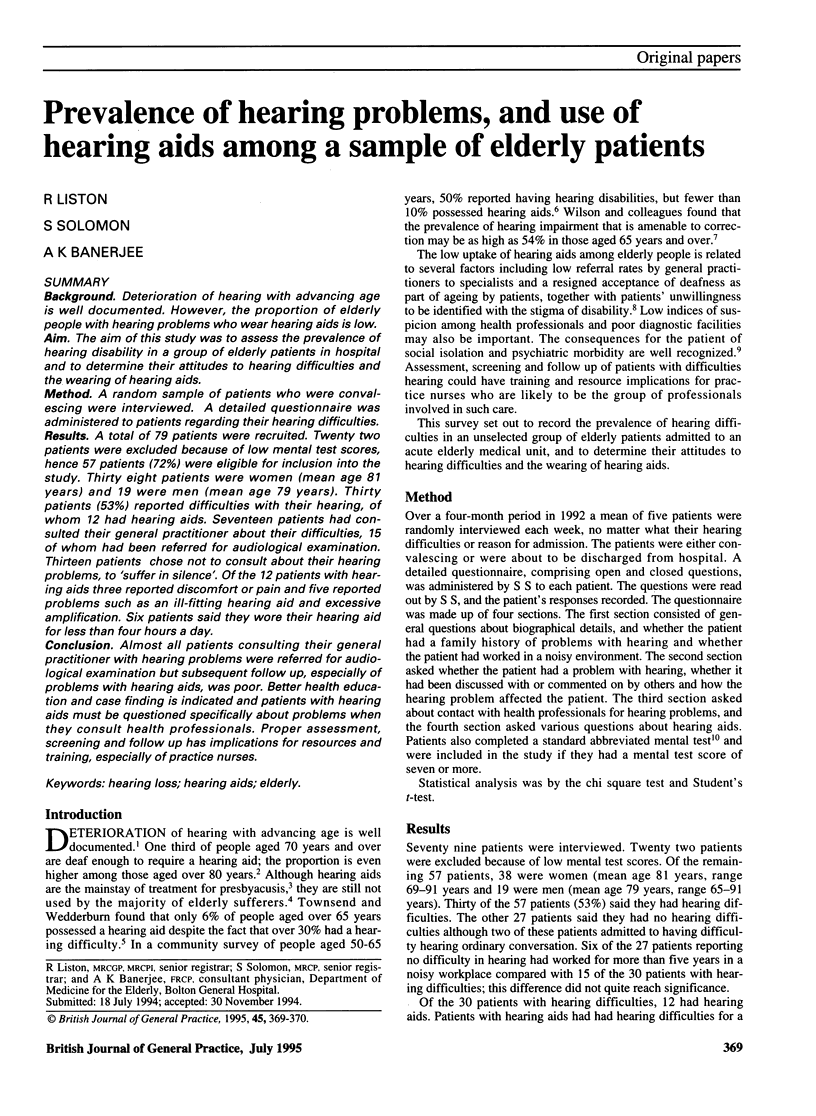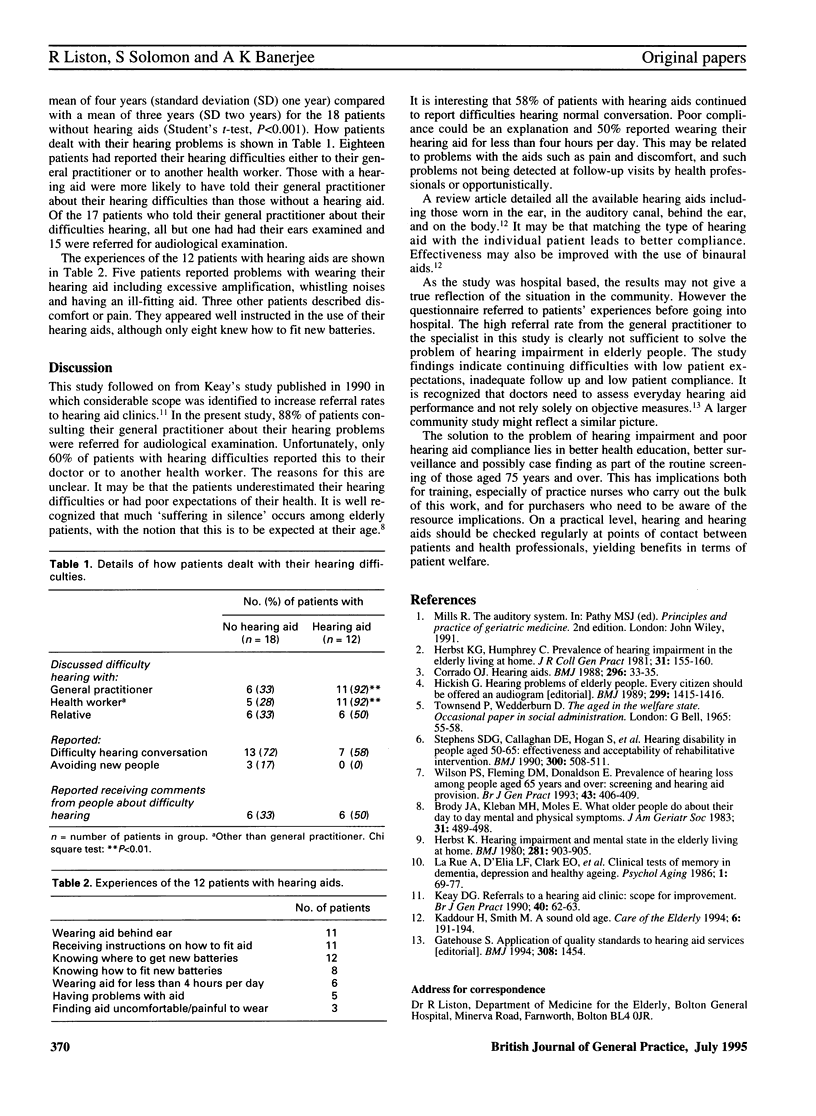Abstract
BACKGROUND. Deterioration of hearing with advancing age is well documented. However, the proportion of elderly people with hearing problems who wear hearing aids is low. AIM. The aim of this study was to assess the prevalence of hearing disability in a group of elderly patients in hospital and to determine their attitudes to hearing difficulties and the wearing of hearing aids. METHOD. A random sample of patients who were convalescing were interviewed. A detailed questionnaire was administered to patients regarding their hearing difficulties. RESULTS. A total of 79 patients were recruited. Twenty two patients were excluded because of low mental test scores, hence 57 patients (72%) were eligible for inclusion into the study. Thirty eight patients were women (mean age 81 years) and 19 were men (mean age 79 years). Thirty patients (53%) reported difficulties with their hearing, of whom 12 had hearing aids. Seventeen patients had consulted their general practitioner about their difficulties, 15 of whom had been referred for audiological examination. Thirteen patients chose not to consult about their hearing problems, to 'suffer in silence'. Of the 12 patients with hearing aids three reported discomfort or pain and five reported problems such as an ill-fitting hearing aid and excessive amplification. Six patients said they wore their hearing aid for less than four hours a day. CONCLUSION. Almost all patients consulting their general practitioner with hearing problems were referred for audiological examination but subsequent follow up, especially of problems with hearing aids, was poor. Better health education and case finding is indicated and patients with hearing aids must be questioned specifically about problems when they consult health professionals. Proper assessment, screening and follow up has implications for resources and training, especially of practice nurses.
Full text
PDF

Selected References
These references are in PubMed. This may not be the complete list of references from this article.
- Brody E. M., Kleban M. H., Moles E. What older people do about their day-to-day mental and physical health symptoms. J Am Geriatr Soc. 1983 Aug;31(8):489–498. doi: 10.1111/j.1532-5415.1983.tb05124.x. [DOI] [PubMed] [Google Scholar]
- Corrado O. J. Hearing aids. Br Med J (Clin Res Ed) 1988 Jan 2;296(6614):33–35. [PMC free article] [PubMed] [Google Scholar]
- Gatehouse S. Application of quality standards to hearing aid services. BMJ. 1994 Jun 4;308(6942):1454–1454. doi: 10.1136/bmj.308.6942.1454. [DOI] [PMC free article] [PubMed] [Google Scholar]
- Herbst K. G., Humphrey C. Hearing impairment and mental state in the elderly living at home. Br Med J. 1980 Oct 4;281(6245):903–905. doi: 10.1136/bmj.281.6245.903. [DOI] [PMC free article] [PubMed] [Google Scholar]
- Herbst K. G., Humphrey C. Prevalence of hearing impairment in the elderly living at home. J R Coll Gen Pract. 1981 Mar;31(224):155–160. [PMC free article] [PubMed] [Google Scholar]
- Hickish G. Hearing problems of elderly people. BMJ. 1989 Dec 9;299(6713):1415–1416. doi: 10.1136/bmj.299.6713.1415. [DOI] [PMC free article] [PubMed] [Google Scholar]
- Keay D. G. Referrals to a hearing aid clinic: scope for improvement. Br J Gen Pract. 1990 Feb;40(331):62–63. [PMC free article] [PubMed] [Google Scholar]
- La Rue A., D'Elia L. F., Clark E. O., Spar J. E., Jarvik L. F. Clinical tests of memory in dementia, depression, and healthy aging. Psychol Aging. 1986 Mar;1(1):69–77. doi: 10.1037//0882-7974.1.1.69. [DOI] [PubMed] [Google Scholar]
- Stephens S. D., Callaghan D. E., Hogan S., Meredith R., Rayment A., Davis A. C. Hearing disability in people aged 50-65: effectiveness and acceptability of rehabilitative intervention. BMJ. 1990 Feb 24;300(6723):508–511. doi: 10.1136/bmj.300.6723.508. [DOI] [PMC free article] [PubMed] [Google Scholar]
- Wilson P. S., Fleming D. M., Donaldson I. Prevalence of hearing loss among people aged 65 years and over: screening and hearing aid provision. Br J Gen Pract. 1993 Oct;43(375):406–409. [PMC free article] [PubMed] [Google Scholar]


